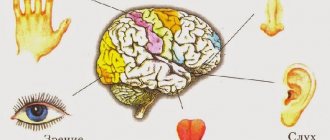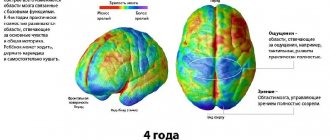What are the differences between the terms individual, individuality and personality: characteristics
- An individual is a single representative of the human race, a separate person, regardless of his real anthropological and social characteristics.
- Individuality is the unique originality of a person’s manifestations, emphasizing the versatility and harmony, naturalness and ease of his activities.
- Personality is a human individual who is a subject of conscious activity, possessing a set of socially significant traits, properties and qualities that he realizes in public life.
Properties that characterize an individual
Each concept has its own special features that it possesses. The thing is that in psychology the term “individual” can be characterized by a number of properties. First of all, these are: gender, age category, body features, and characteristics of the functioning of brain activity. Secondly, other inclinations of a person, for example, the type of temperament, can be safely attributed to the properties of an individual. Age qualities can determine a number of characteristics of a person that identify him, the process of his formation as a result of ontogenesis.
Sexual characteristics are the distinctive features of gender. One can name a number of individual-typical parameters that are presented from the point of view of general somaticity, or as constitutional qualities that have neurodynamic distinctive features. Neurodynamic characteristics in this context should be considered as separate aspects of the human psyche.
What is the difference between an individual and an individual?
Yes, these are words with the same root, but they mean two completely different concepts. The first term is applicable to absolutely any person who lives among people, is socialized in society and is not only a biological species, but also a representative of humanity. The second definition, in turn, presupposes the path of development of the individual.
Often, most people consider themselves individuals only because they are trying to resist the world around them. They are truly different from everyone else, but as long as there are not too many of them. Therefore, only one that is invented independently and not copied from another can be considered an individual solution.
How psychologists view this term
An individual is called the exact bearer of all the traits that are given to humanity. But in psychology, the term individual is characterized by the integrity of the psychophysical organizations of the body, its activity, as well as resistance to manifest actions. A person lives as an individual from the beginning of his birth until the moment of death. This condition is the initial one on the planet from the point of view of its phylogenetic formation, as well as ontogenetic development. It is a concrete product of the creation of life, which actively interacts with a variety of surrounding criteria, and not a series of conditions that appeared suddenly. One thing is clear: it is impossible to consider a personality without close attention and emphasis on his individual characteristics.
They thus act as the foundation of human content. It is on them that a number of conditions for the development of each representative of the human race will depend, that is, on the inclinations that were invested in him at the genetic level. An individual has a number of basic functions, and specifically there are two of them. One is classified as conservation, thanks to which the process of distribution of energy and dynamic characteristics occurs, as well as a number of resource characteristics. But the other one is responsible for the function of so-called changes, from the point of view of plasticity of behavior.
Why a person is an individual: description
Every person is an individual.
After all, we were all born on Earth and are representatives of the human race. In most modern theories, what distinguishes humans from animals is culture, which plays a decisive role in determining human behavior and actions. After all, human nature is recognized as binary, that is, man is a biosocial being. A table proving that a person is an individual.
| Animal | Human |
| Life is accompanied by instincts. | Along with instincts, a person has thinking and articulate speech. This directs human activity. |
| All actions are initially programmed; the activities of animals are unconscious. | Carries out conscious, purposeful creative activity. A person is able to keep his instincts under control. |
| Reproduces only its biological essence. The tools of their labor are primitive objects of the environment. | Reproduces its not only biological, but also social essence; makes tools; creates material and spiritual values. |
Social formation of the individual
If we understand the individual in the social aspect, then we can imagine the following understanding of this word: this is a person who participates in the socio-cultural life and activities of society, revealing his individual traits in the process of communicating with other people. Therefore, an individual can exist, as it were, in two forms: firstly, he is a separate person, a subject of certain relationships, and in this sense, every person is such; secondly, it is a member of a society who has a set of stable qualities: an actor, a writer, an athlete, a politician, a scientist... In the second case, one must become an individual, or a personality, in the process of social development.
The social development of an individual is a fairly broad concept, the elements of which are various influences on a person exerted from his very birth: purposeful and random, positive and negative. They also talk about socialization - the process of including an individual in the system of social relations, independently producing such relations and assimilating social experience.
Purposeful and systematic influence on an individual is also called education. First of all, this applies to a child, but they are also educated in adulthood - in the broader sense of the word. Education is designed to form the necessary moral qualities of a person, which also affects his socialization. The role of education, however, changes as the child develops: in the first years of life it is the main type of social influence, and at an older age its importance decreases - a person becomes more independent.
At the same time, the social development of an individual may have certain difficulties. For example, normal socialization may be hampered by the characteristics of his mental and physical development. Normal social relationships in such a situation (especially if the problems are mental) are difficult, and the child needs help for socialization.
In the social development of an individual, it is customary to distinguish three groups of external factors. The first is a “large” group, which includes space, the world, planet, country, state; these factors shape the socialization of very large groups of people, including the population of the entire planet. The second group is “average”, in which groups of people are distinguished according to a certain criterion: place of residence (city, village), nationality, audience of a media outlet (the public of a certain TV channel, movie fans, radio listeners, etc.). The third group is “small”, it covers factors that directly affect a particular person: family, friendly group, school, etc.
The social formation of an individual is, one might say, the highest level of development of a person as a social being and his highest need. In the process of such development, a person strives not only to consume (food, entertainment, knowledge, etc.), but also to give something, to make his feasible contribution to the further formation of society. At the same time, we must not forget about the internal potential of a person: the original characteristics of the future personality are still inherent in him at birth; Each of us has a certain temperament, character, certain inclinations, and a certain level of physical development. With the help of education, of course, you can shape any personality, but the approach must be individual, taking into account all the characteristics of a particular person. What works well for one individual may not work for another.
Sanguine people, for example, are more inclined to communicate and share their own experiences with other people than phlegmatic people. Cholerics are more hot-tempered and unbridled than representatives of other temperaments.
The social formation of an individual is an extremely important process for human society. If only because humans, as scientists confirm, have no instincts at all. We can say that man is the only creature who is not born by himself, but only becomes one in the process of upbringing and other types of social influence. “Mowgli people” who grew up in the forest have long ceased to be a curiosity; Since childhood, having no contact with a society of their own kind, such creatures are not capable of even basic actions. They don’t even have the instinct of self-preservation, so the very fact of such people surviving in the wild seems incredible. Animals, unlike humans, at birth already have a set of “recorded” behavioral models for all major life occasions, and these models are often quite complex. Thus, cats from a certain age begin to bury their waste, even if they were raised without a mother from birth.
At the same time, it is not yet completely known what formed first: human helplessness, forcing one to live in society, or a society in which life led to the loss of innate instincts. One thing is clear - in the process of his development, man finally “broke himself away from nature,” and since then social activity has become his main way of existence.
At the same time, the role of the individual has also changed. In the animal world, every creature strives to leave behind offspring, to continue “its blood.” This, in general, is the main goal of any living organism. But in human society, the self-reproduction of each of its members ceases to be the main goal, and another need comes to the fore - the maintenance and development of society. This is achieved by performing certain labor tasks. Only a limited part of people are able to leave behind healthy offspring, but turning these children into full-fledged people is already the task of the whole society. The biological male parent is not the only father for the child: often other “fathers” and “mothers” are more important - teachers, various celebrities (musicians, actors, writers), scientists, politicians. This is confirmed by constant socio-economic problems: often both biological parents are forced to work hard to feed their children, and then their upbringing is transferred to outside forces - these can be grandparents and other relatives, someone is “raised on the street”, someone something “brings up TV”...
Humanity understood this in ancient times. It is not for nothing that the concepts of “spiritual father” and “godfather” appeared in ancient religious cultures. Such “parents” were initially given greater responsibility for raising the child than biological fathers and mothers. Gradually, not a single individual could do without his “spiritual father.”
Of course, the social formation of the individual did not appear suddenly. Something similar, in a more simplified form, can be noted in the so-called social animals. These are ants, bees, termites and some other insects, as well as a number of mammal species - naked mole rats (African underground rodents), wolves, etc., including, of course, primates. Only a limited number of males and females are engaged in the constant reproduction of offspring in the communities of these animals; in ants, this is usually one single female and one to three males; in this case, there can be several million individuals in the entire anthill. What are all the other members of the community doing? They get food, protect the territory, conduct reconnaissance work - that is, in various ways they ensure the safety of the community and, in particular, the young. The ability of workers to reproduce does not play a special role in the survival of the community: in some species they can also sporadically produce offspring, in others they are asexual and cannot physically reproduce. But their existence is no less important for the young than the existence of their biological parents. If all working individuals stop doing their activities and begin to reproduce without exception, the community will die. Human society is very similar to the communities of these animals, except that people have much more “professions” (in the narrow and broad sense).
What does the term “personality” mean in social science?
The term “personality” plays an important role in social science and is studied primarily in the section “Man and Society”.
Personality is an individual person as a subject of social life, communication and activity with his own socially conditioned and individually expressed qualities.
Personality is characterized by a unique combination of the individual’s natural properties (age-sex, biochemical, neurodynamic and others) and social qualities formed in a particular environment.
The concept of “personality” allows us to consider a person as a bearer of certain social roles, and to correlate his activities with normatively established principles.
In humanistic philosophical concepts, personality is considered as the highest value for the sake of which social development is carried out.
Signs of individuality
A person is born with his own goals, aspirations and mission. The environment, starting from the parental family and ending with society, introduces its own restrictions in the form of prohibitions, norms, attitudes and traditions. As an element of society, people carry these correspondences within themselves and are similar in this way. Then how does the formation of an individual’s uniqueness occur? The concept of individuality has many levels, the integrity of which can only be measured using mathematical statistics. Factorial individuality includes the following characteristics:
- features of the cognitive sphere (non-trivial thinking, imagination, memory);
- extraordinary abilities;
- the rich “inner” world of a person, formed in the course of personality development;
- self-worth;
- integration and activity in society: the establishment of unique interpersonal relationships that are characteristic only of a specific person;
- creativity arising from a personal, unique perception of the world;
- self-realization through personal contribution to the culture and spiritual development of the city, country, world;
How to become an individual?
The famous saying of O. Wilde says: “Be yourself, the rest of the roles are taken.” Today it has become fashionable to express individuality and stand out from others. But whether this individuality is the one that makes you pay attention to yourself in a positive, memorable aspect, everyone determines this for themselves. The development of individuality involves enormous internal work of the individual:
- developing your own style (clothing, manner of speaking, hairstyle, gestures);
- forming your own point of view;
- development of speech skills (public speaking);
- stop caring about what others think or say (healthy indifference);
- increased confidence;
- constantly reminding yourself of your uniqueness and uniqueness.
Qualities inherent in personality
Personality is the totality of a person’s qualities. Each personality has its own unique set of qualities, there are a lot of them, sometimes one contradicts the other. So, a good-natured person may have greed in his character. He treats people around him well, but never lends money or gives expensive gifts.
Distinctive personality traits are:
- Worldview. This is a whole system of views on the world, ideas about it, values that can be realistic or illusory.
For example, a seven-year-old boy, Vasya, believes that all doctors are cruel and evil. He formed this opinion after Vasya suffered from a purulent sore throat. The doctor gave him injections for a whole week; a strong painful reaction was left in the boy’s memory for a long time.
But the worldview can change over time, so, having matured, Vasya will understand that he was mistaken about doctors in childhood.
- Character. Each person has a set of personal characteristics and qualities that determine his behavior. Character is closely related to emotionality, so excessive sensitivity can lead to touchiness, hot temper makes a person angry.
- Degree of responsibility . You can tell whether a person is serious or not by his actions. Individuals who are constantly late, fail to fulfill their obligations, promises, or refuse responsibilities are called irresponsible. A responsible person, on the contrary, strives to bring all matters to the end, keeps his word, and is responsible for his own actions. Such people are always respected and valued in society, they are entrusted with responsible tasks, and appointed to higher positions.
- Self-esteem. An individual can distinguish himself from the rest of society and evaluate his own activities, appearance, habits and other characteristics. Self-esteem is developed through the process of comparing yourself to others.
Self-esteem largely determines how society will accept a person and whether others will love him. You can notice how in the school class they tease narcissistic children who do not respect teachers and peers, considering themselves superior and much better than others. But guys with low self-esteem are also shunned; they often have few friends due to shyness and indecisiveness.
- Mental capacity . From birth, everyone has their own intellectual potential, that is, the ability to develop their minds. But a person can surpass his natural abilities thanks to perseverance, determination, and his work.
Example. Petya Ivanov has innate mathematical abilities. But he gets 4s and 3s because of laziness and unwillingness to do his homework. Sasha Sidorov is not good at mathematics, but he devotes a lot of time to extracurricular activities, and has already begun to earn his first A's.
If desired, a person can develop his memory, logical thinking, willpower and even physical abilities.
The qualities of a person’s personality are manifested and developed in the process of communication, interaction and work activity.
Individual psychological characteristics of personality
People differ from each other by personal properties, that is, by traits inherent in one individual. The definition of “individual characteristics” denotes psychological and somatic (from Latin “body”) definitions of a person: height and figure, skeletal formation, eye color, hair, and so on.
An individual personality trait is the facial expressions of a person. A person’s face reflects not only the anatomical, but also the psychological specificity of a particular person. For example, when they say: “this person has wicked eyes”, “you have a conscious face”, they mean precisely the peculiarity of a psychological character inherent in a particular individual.
Let us summarize individually - psychological characteristics into four facets of personality:
- Social qualities (moral orientation, worldview).
- Biological qualities (vital needs, temperament, inclinations).
- Individual traits that have a different mental nature.
- Experience (a set of skills, habits and skills).
Does the collective suppress individuality?
Human individuality at a certain point along the path needs a group where it can flourish and be realized. A person begins to grow professionally, surpass in performance results or the quality of work of the “average” members of the team - a conflict is formed between the group and the individual. A pronounced individuality causes irritation among the rest of the team members, who are mediocre in their responsibilities. Another development of the scenario occurs in creative teams, where individuality is only welcomed.











